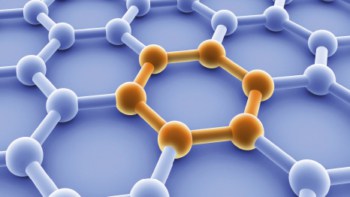This week’s podcast begins with something close to all our hearts, or mouths for that matter. We’re talking cakes, biscuits and pastries – that’s because Sarah Tesh is here to discuss how nuclear engineer Rahul Mandal used his knowledge of physics, chemistry and biology to win last year’s Great British Bake Off, turning the Sheffield University researcher into something of a cult hero among TV viewers and amateur bakers alike.
Next up, Michael Banks is on hand to discuss the ding-dong in the physics community this month about the award of a $3m Special Breakthrough Prize to three theoretical physicists who developed the theory of “supergravity” that’s never been experimentally verified – or at least not yet. The prize has polarized opinion and we bring your views on Twitter about so much cash being handed out for this kind of work.
Now if you’re a regular reader of Physics World you’ll know we spend a lot of time reporting about research into graphene — the wonder material made of a single layer of carbon that’s got some eye-popping physical properties. Our materials editor Anna Demming and reporter Belle Dumé is here to discuss new work by researchers in China into a new material called T-graphene that could superconduct without the need for doping at temperatures as low as 20K.
And finally, Anna’s back to talk about the physics behind Simone Biles’ incredible triple-twisting, double somersault at the 2019 US Gymnastics Championships.



